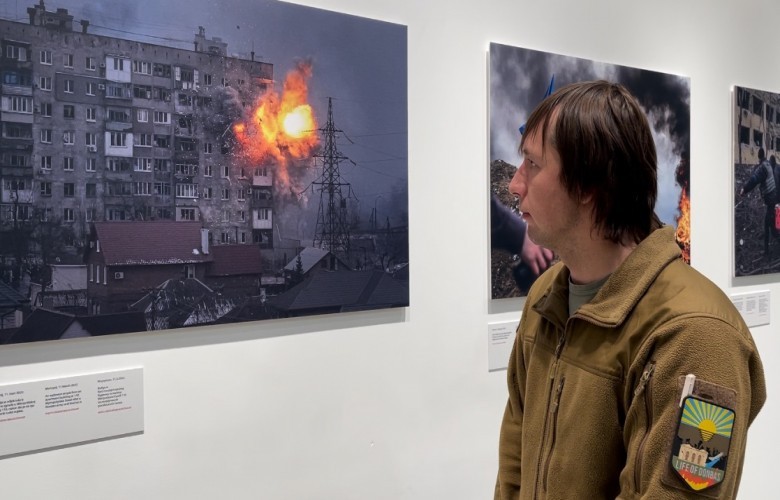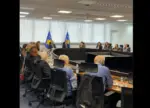Ukrainian photographer Evgeniy Maloletka described life in Ukraine as a daily battle, as over 1,000 days of destruction and suffering continue. Maloletka emphasized that although Ukrainians live with fear every day, their fight endures because their resistance prevents the total annihilation of their country.
“The fight for life, truth, and the future does not stop in Ukraine,” said Evgeniy Maloletka in an interview with RTK. He is renowned for his photographs that have become symbols of destruction and suffering during the war.
Maloletka, a photographer for the American news agency Associated Press, was in Belgrade for the opening of an exhibition dedicated to the war in Ukraine, where some of his works were displayed.
“Today, life in Ukraine is a daily challenge. Sirens or personal alarms wake you up, and you constantly check the news to see what happened overnight—victims, destruction, and losses,” said Maloletka.
The Ukrainian photographer was part of the team that documented the horrors of Mariupol in the Oscar-winning documentary “20 Days in Mariupol.” In dangerous conditions, he and his team documented hospital bombings, destruction, and mass graves. The film bears witness to the bombings and innocent victims, including children.
“All the events, numbers, and data seem unreal until you see them on the ground. When you talk to people who have just been attacked or soldiers returning from the front lines, or when you visit the front itself, you understand the scale of the tragedy,” Maloletka explained.
He also captured numerous images during the siege of Mariupol, but one photograph became a symbol of suffering. It depicted a bloodied pregnant woman on a stretcher being evacuated from a bombed maternity hospital. Another photo showcased the devastation of residential buildings.
“You try to gather all these experiences and convey them. Our mission is to share these stories through photographs and films, but even then, it feels insufficient. As journalists, we constantly think—how can we deliver another image to remind people that the war hasn’t ended?” he noted.
Maloletka hails from Berdyansk, near Mariupol, in the Zaporizhzhia region. He stressed that many people cannot bury their loved ones with dignity or locate the missing. In Ukraine, people strive to live “normally,” though, as he pointed out, they live each day fearing for their lives.
“Even though supermarkets operate, people try to live, and schools function in shelters, we all live with the question: who will be next? My parents are refugees, and my hometown is occupied, like many others. How can one live like this?” he asked.
“If Ukrainians hadn’t resisted initially, Ukraine would no longer exist. Our people are fighting, and that’s why Kyiv, Kharkiv, and Zaporizhzhia still stand, despite daily attacks,” he explained.
Maloletka emphasized that photographers cannot stop the war, but they can provide information. According to him, the suffering of people living in unpredictability and daily horrors must not be forgotten.
“As photographers, we can capture and record moments of truth that will remind the world of the cost of war.”







